TEATIME invited 41 experts from 13 countries to the COST headquarter in Brussels for scientific exchange and intense discussions. In recent years, we have observed that application of home cage monitoring is growing rapidly. There are now a variety of tools and applications that can already be used to track animal activity and even analyze their behavior. It became clear early on, in fact when writing the application for TEATIME, that home cage monitoring carries a huge potential for improving animal welfare.
Many of the invited researchers were already part of TEATIME, but a whole range of external experts were also involved. This was very beneficial, not only because it allows us to spread our message further, but also because it helps us to think outside the box and incorporate these perspectives into our current and future endeavors.
The overarching theme of the meeting was animal welfare and how home cage monitoring can be used to measure and improve it. We heard talks about a variety of biomarkers that can be used to automatically assess animal welfare. Beyond complex behaviors that sometimes may still require manual annotation, some of the existing systems can already measure body weight, temperature changes, respiratory rate, and urination to name just a few. But even the more complex behaviors and bodily signs included in traditional score and care sheets are subject to automatized assessment using deep learning-based solutions developed for data from video surveillance. Interestingly, we were taught that you can actually learn a lot from years of experience in automated behavioral observation of larger animals such as pigs and cattle.
The second day of the meeting was dedicated to data. Even if the last sentence says it all, here are a few teasers: Our data must not only be collected but also named, sorted, stored, managed, provided with metadata and preferably handled according to the FAIR principles (https://www.go-fair.org/fair-principles). If we can really get this right and manage to mine all the data treasures from the data swamp, then we truly would have a lot more time for a real tea time.
Bi-annual conference of the Federation of European Neuroscience Societies (FENS) took place on 25-29 June 2024 in Vienna, Austria. The FENS Forum 2024 was attended by ~8000 participants, representing all diversity of neuroscience research from all over the world.
Two years ago in Paris, the COST Action TEATIME introduced itself to the neuroscience community. Our social event there was attended by less than 50 people. Since then, the Action has gained momentum and visibility with several tangible outcomes achieved and we were happy that FENS accepted our proposal for another networking event in 2024, with a focus on our online discussion forum, www.TheBehaviourForum.org. This forum was launched a year ago with a goal to develop a platform for sharing information on behavioral research in laboratory animals. It includes discussions around experimental protocols, research equipment, data interpretation, animal welfare, training opportunities, conferences, job announcement and more (https://www.cost-teatime.org/about/thebehaviourforum/). The social event in Vienna aimed at promoting the use of this resource by the scientific community, attracting new active contributors, and encouraging exchange among attendees. Thanks to the activity of TEATIME members in organizing webinars, training schools, attending conferences with talks and posters, and publishing papers promoting and advocating the novel technology and best practice in monitoring the laboratory animals we have expanded the network substantially and at 7 pm on July 25 the room was fully packed with more than 150 people!
Christophe Lamy (University of Geneva, Switzerland) kicked off by informing the audience about the COST Action TEATIME (https://www.cost-teatime.org/). He was followed by Otto Kalliokoski (University of Copenhagen, Denmark) who gave a brief insight to the BehaviourForum – presenting the interface, the categories and discussion topics, with practical notes on how to get started and engaged in the discussions. Finally, Hamid Taghipourbibalan (The Arctic University of Norway in Tromso) shared his experience from two special tools that COST Actions offer for young researchers – training school and short-term scientific mission. Hamid also gave insight to his own research, where home-cage monitoring is applied in studying how the brain controls appetite and food intake.
The presentations were followed by lively informal networking that didn’t stop until the doors were closed and crowd was forced to leave the rooms. Clearly, it was a place for meeting other members of the Action, many participants of the TEATIME schools showed up and brought their colleagues along – it also meant that there was a lot to share about the basic principles of COST Actions (openness – it’s never too late to join, inclusiveness – promoting geographical diversity and gender equity, opportunities for young researchers for training and career development). Throughout the FENS conference (where several of our members presented their posters, and industrial partners were present at their exhibition booths), it became quite clear that there is still a lot to do in promoting and applying home-cage monitoring as a method to collect more data for describing and understanding the animal behaviour and physiology, at the same time ensuring good animal welfare. Also, dialogue and connections between laboratory animal scientists, data scientists and neuroscientists need to be strengthened.
It was indeed a great meeting of old friends and colleagues, but also making new connections and keeping TEATIME spirit high!
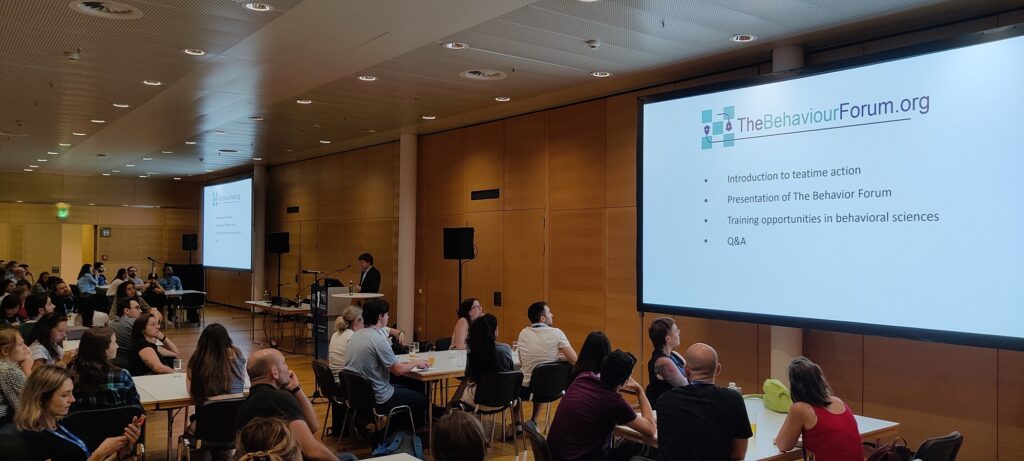
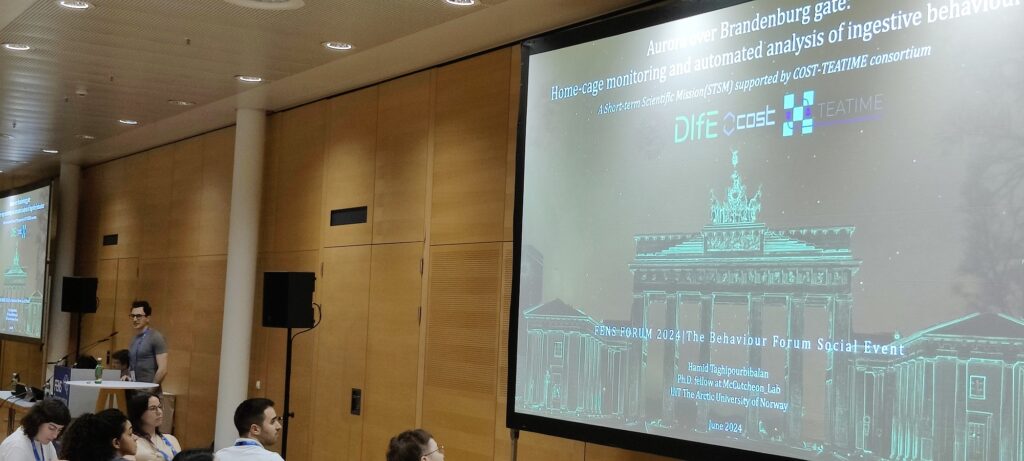
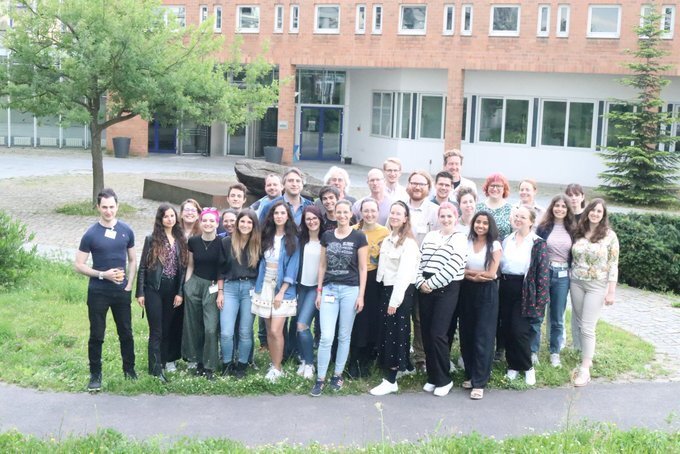
The second Advanced Training School took place in June 2024 in Berlin at the German Federal Institute for Risk Assessment (BfR). Out of 60 applicants, 22 young scientists from 13 European countries were invited to learn more about the use of home cage based technologies to monitor rodents in research. The students’ participation was fully funded by COST.
The various presentations focused on ways to improve the standardisation and reproducibility of behavioural testing. In addition to commercially available home cage based set-ups, self-developed set-ups were presented and examples of their use were given. The importance of home cage testing for animal welfare was also discussed.
The options for building self-made systems or replicating existing ones are becoming increasingly diverse. Therefore, a workshop was held with a very simple example of how to build a simple prototype to measure activity in the home cage. Participants were guided through the building instructions step by step, so that by the end everyone had their own small device. The workshop was designed to give participants a first experience of building their own devices and to overcome any fears they might have.
Interacting and networking with each other and the experts was an important part of the Training School. Many opportunities were provided for this, including breaks, lunches and the various evening events.
|
In celebration of International Women’s Day 2024, we are pleased to share with you insights of some of the amazing female researchers in our Action
Every year International Women’s Day is an excellent opportunity to hold on for a moment and to reflect on the specific contributions of women to our societies and our well-being, and to potentially look for role models. This year, we @COST-TEATIME asked the marvellous female scientists in the leadership of our Action what drove them to pursue a career in science, what motivates them and what they gained so far from the participation in the leadership of a COST Action. We are very happy about the responses we got and think they pretty much reflect the science-driven and collaborative spirit we perceive within our Action. Take a look at their statements and see for yourself!
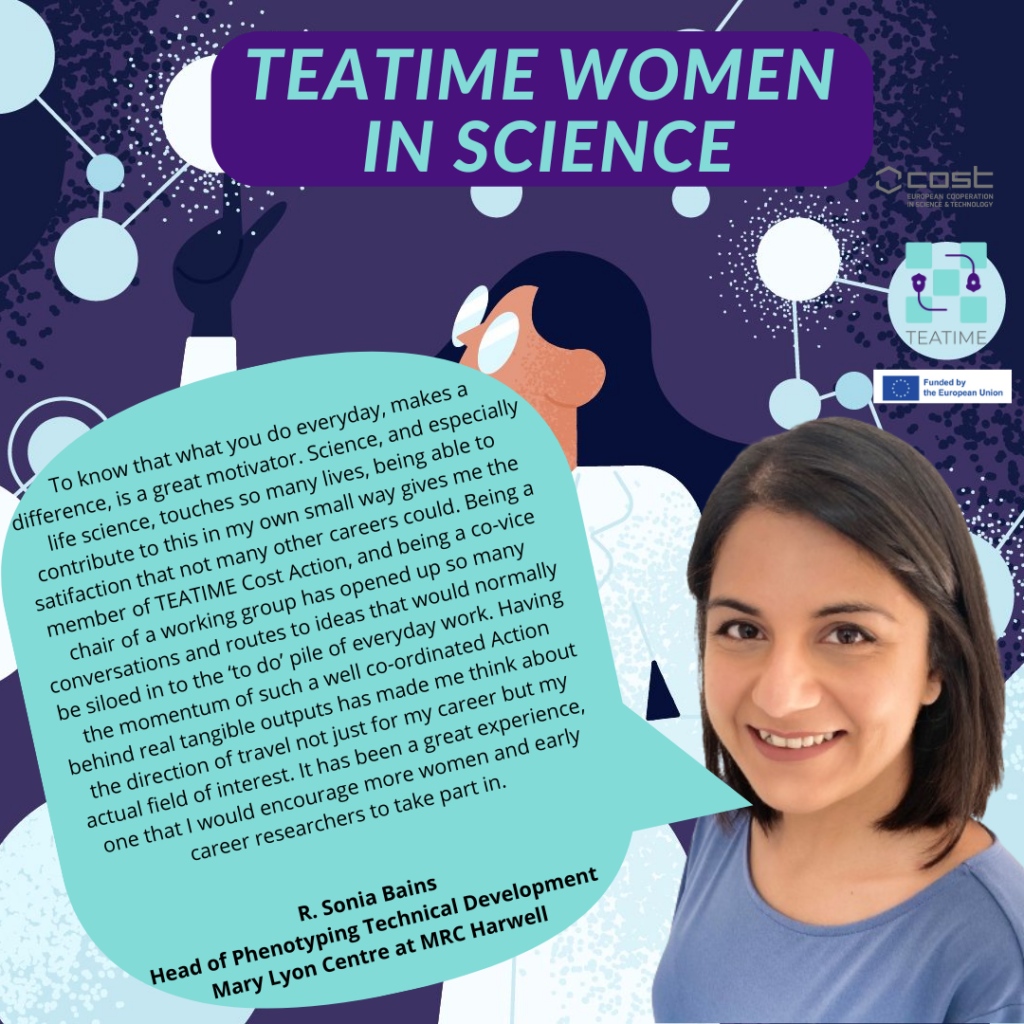
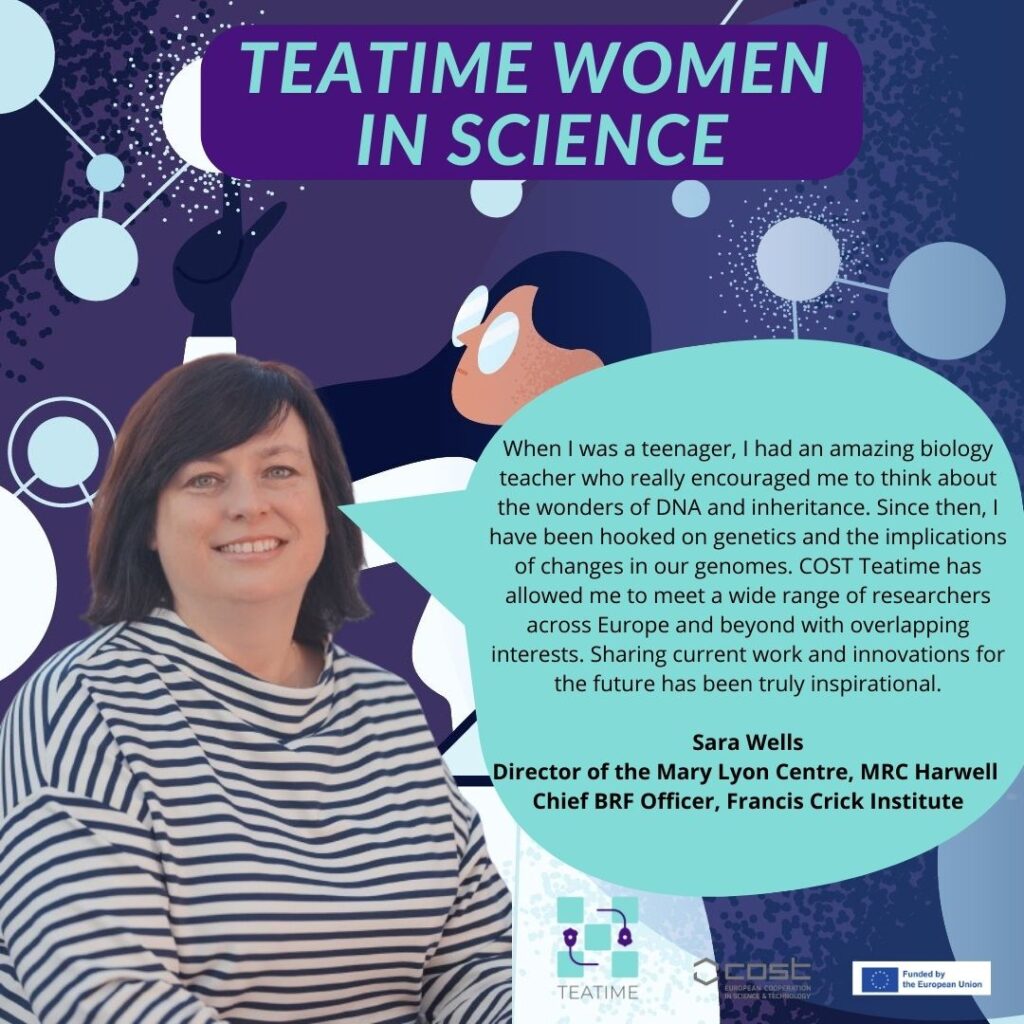
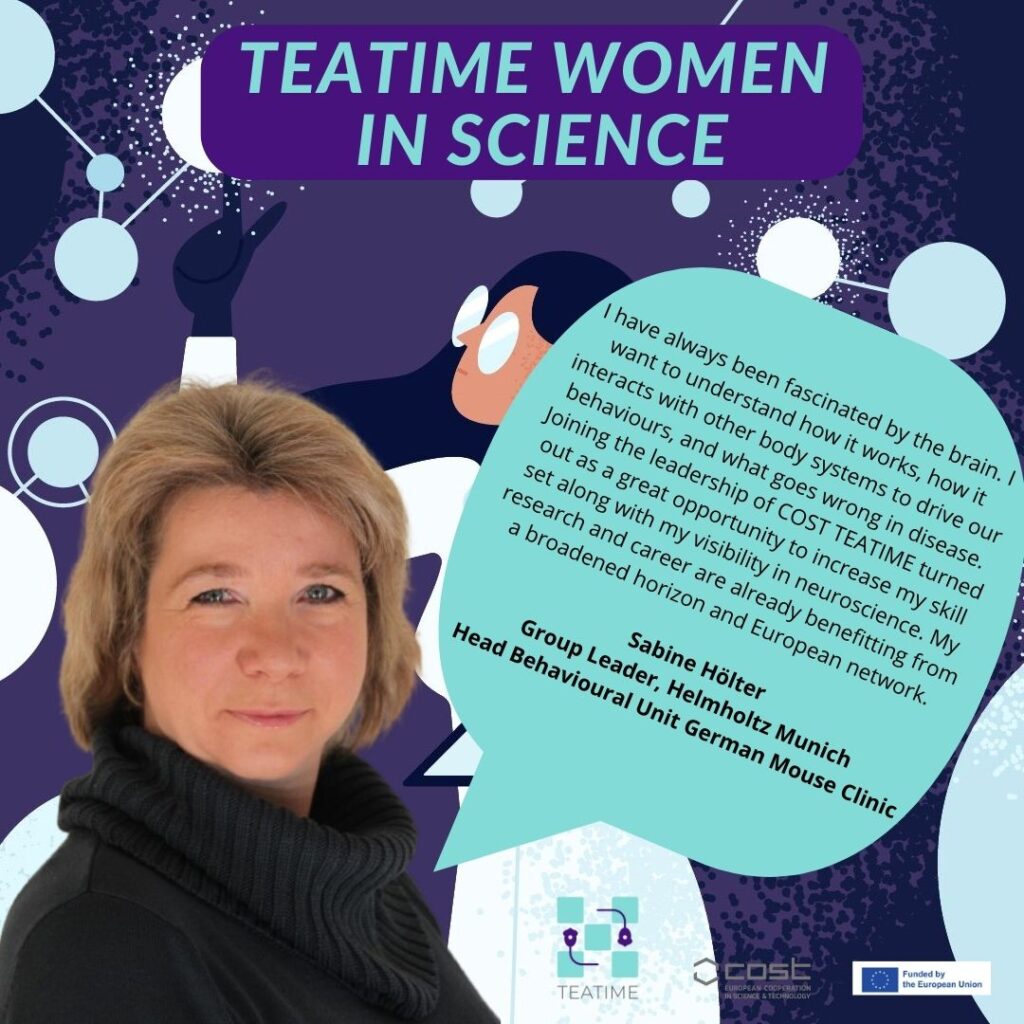
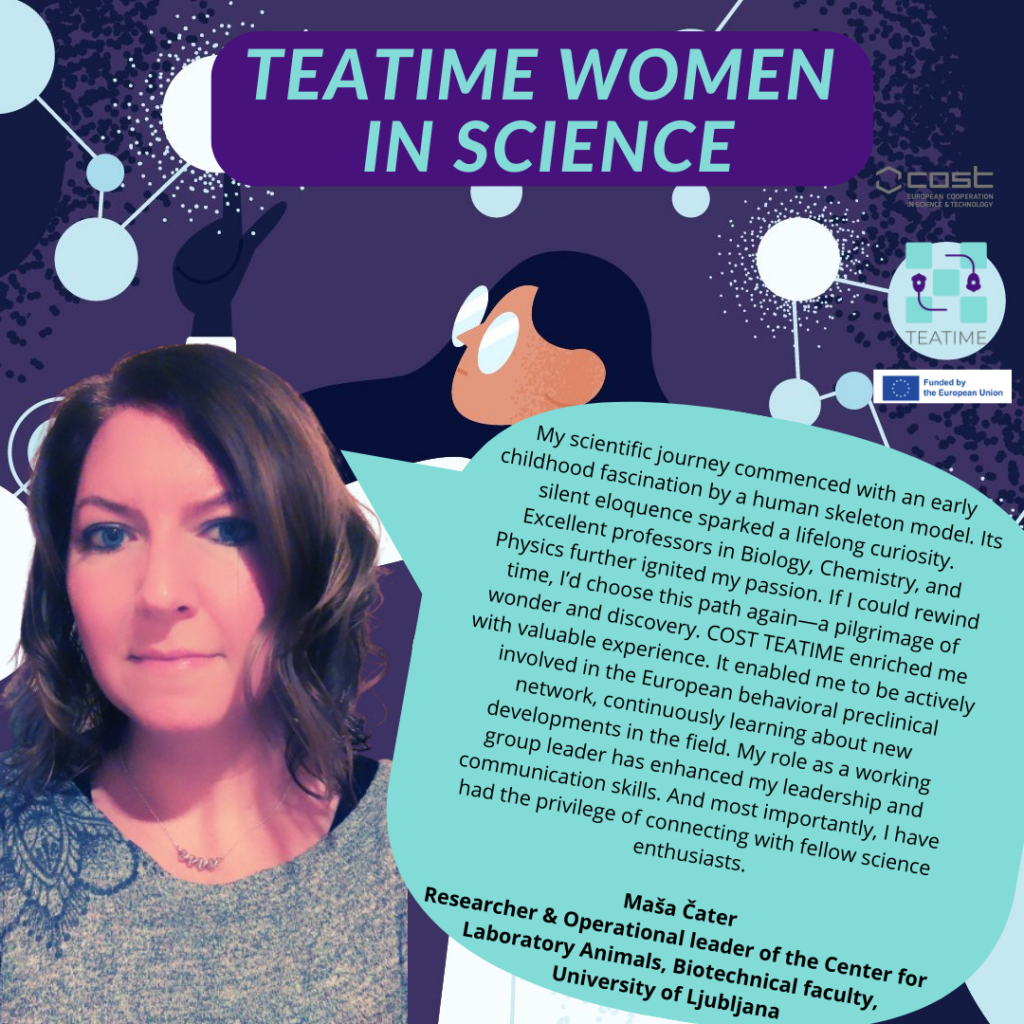
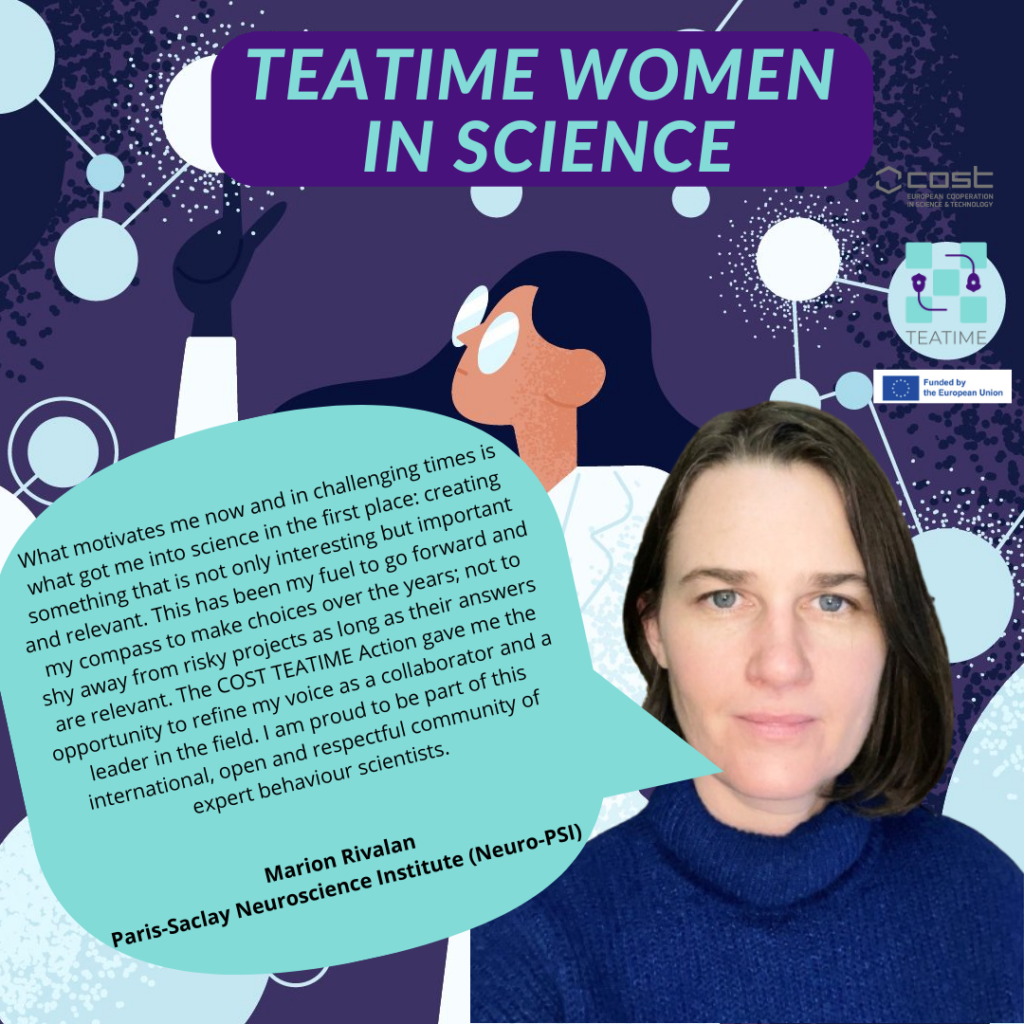
|
This autumn we have unveiled a comprehensive paper delving into the transformative potential of home-cage monitoring technology (HCM) in the realm of biomedical animal research. Traditionally, laboratory rodents undergo individual examinations in external test apparatuses at specific time points, a practice that may overlook crucial data influenced by various factors. To address these limitations, the research community has increasingly turned to longitudinally monitoring mice and rats within their home cages. The recently published systematic review, drawing insights from 521 publications sourced from PubMed and Web of Science, sheds light on the evolution of HCM and its current state-of-the-art applications.
Over the covered period, numerous studies have shown a remarkable enhancement in techniques for HCM of mice and rats. The ongoing development signifies a promising trajectory for the field, indicating that continuous, longitudinal, and non-invasive monitoring of various parameters in group-housed small rodents within their home cages is within reach. By monitoring animals in their home cages over extended periods, we can capture a more accurate representation of their natural behavior and physiological responses. This not only enhances the reliability of our findings but also opens up new possibilities for studying a broader array of parameters in a group setting. The implications of this research extend beyond mere technological progress. The ability to monitor animals continuously within their familiar environment holds the potential to revolutionize experimental designs, offering a more comprehensive understanding of the impact of various interventions and stimuli. As the field of HCM continues to evolve, researchers anticipate further refinements and validations of monitoring systems. These improvements will inevitably broaden the applications of HCM, allowing for a nuanced understanding of the intricacies of animal behavior and physiology over time.
In conclusion, the paper signifies a pivotal moment in biomedical research, highlighting the strides made in home-cage monitoring technology and hinting at a future where the continuous observation of small rodents within their home cages becomes standard practice in laboratories worldwide.
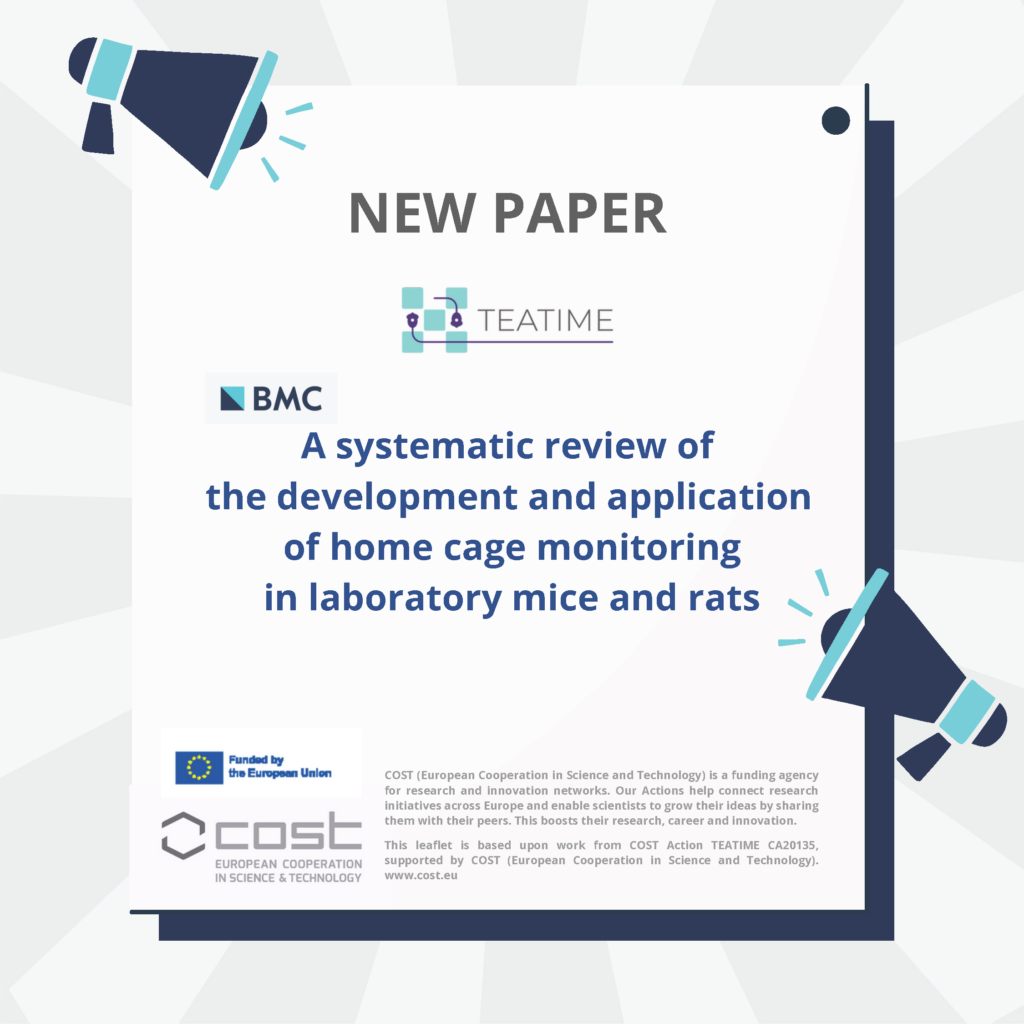
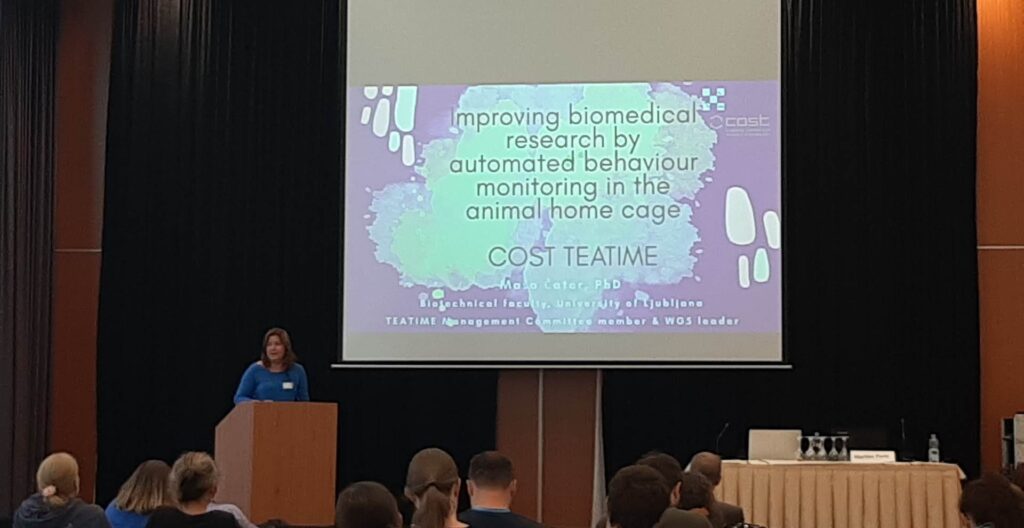
I was privileged to present the groundbreaking TEATIME Action at the 5th Congress of the Society for Laboratory Animals of Slovenia and the 3rd joint SLAS – CroLASA meeting on June 15, 2023, in Ljubljana, Slovenia. My lecture focused on the transformative potential of automated behavior monitoring in the home cages of laboratory animals, particularly mice and rats, aiming to elevate the standards of biomedical research.
TEATIME Action, launched in 2021 and spanning 34 European countries, unites experts in mouse behavior, data science, and animal welfare. Focused on home cage monitoring (HCM) technologies, it aims to enhance the reliability of measures in laboratory rodents, setting standards for ethical preclinical research. TEATIME fosters collaboration through surveys and a systematic review, providing a catalog of HCM systems and offering training programs. This initiative not only refines experimental conditions and reduces animal use but also builds a diverse, interconnected network for a more ethical and efficient future in biomedical research. The abstract of the lecture can be found in the Book of Abstracts (1 (slas.si)).
As the topic unfolded, I was delighted to witness the audience’s curiosity ignite. The flood of questions that followed indicated a genuine interest in the subject. What thrilled me even more was the realization that the information shared was breaking new ground for many researchers. Some attendees were encountering the fascinating realm of Home Cage Monitoring (HCM) systems for the first time. The allure of our shared mission—improving research using laboratory animals—resonated with fellow researchers. Many expressed not only their desire to learn more but also their interest in joining our Action. It’s the kind of collaborative spirit that propels our collective pursuit of knowledge forward. The exchange of ideas and the prospect of forging new connections left me inspired and excited about the collective journey ahead.
dr. Maša Čater
Biotechnical faculty
University of Ljubljana
Slovenia
|
|







































